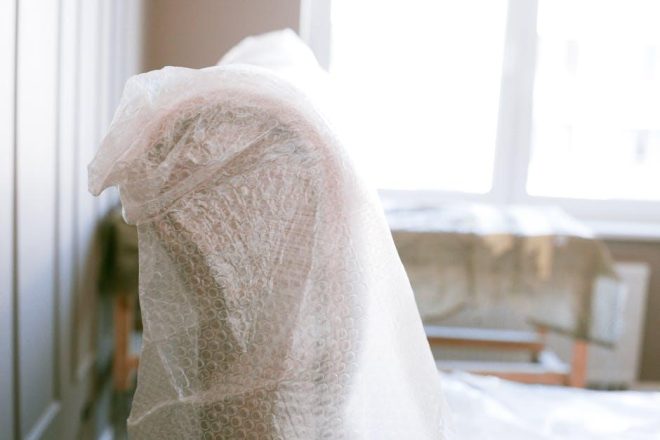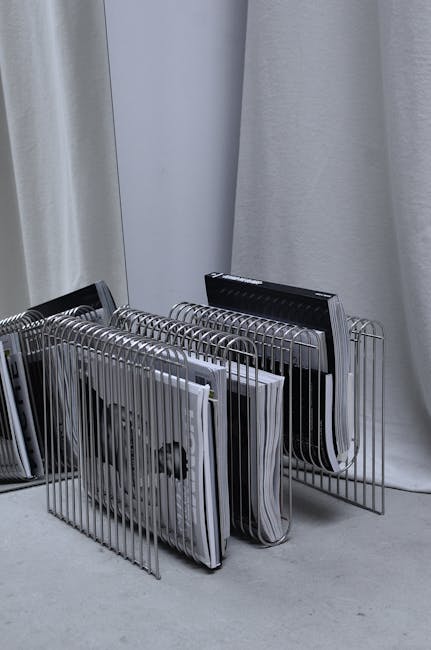
Welcome to the wild world of renting in New Jersey, where navigating landlord-tenant laws can feel like trying to follow a map written in hieroglyphics. It’s a landscape filled with hidden traps, mysterious regulations, and the occasional landlord who thinks they’re above the law. But fear not, intrepid renters, for we are here to guide you through the treacherous terrain of New Jersey’s tenant rights. So grab your compass (and maybe a lawyer), and let’s start this adventure together.
Understanding New Jersey’s Landlord-Tenant Laws
So you’ve found the perfect apartment in the Garden State, but before you sign that lease, it’s important to understand New Jersey’s landlord-tenant laws. Here’s a crash course on what you need to know:
First off, did you know that landlords in New Jersey are required to provide tenants with a written lease agreement? That’s right, no handshake deals here! Make sure to read the fine print before you put pen to paper.
Next up, let’s talk about security deposits. Landlords must return your security deposit within 30 days of the end of your lease. If they fail to do so, you may be entitled to double the amount of the deposit. Cha-ching!
And last but not least, if your landlord fails to make necessary repairs or provide essential services, like heat or hot water, you have the right to withhold rent until the issue is resolved. Just make sure you follow the proper legal procedures – we don’t want you getting evicted over a leaky faucet!
Key Protections for Renters in New Jersey
So you’re a renter in the Garden State, huh? Well, fear not! New Jersey has some pretty awesome protections in place to make sure you’re not getting taken advantage of by your landlord. Let’s break down some of the key protections you should be aware of:
- Security Deposits: Your landlord can’t just pocket your hard-earned security deposit for no reason. In fact, they have to return it within 30 days of the lease ending, or provide a written explanation of any deductions. So go ahead and throw that wild party on your last day – just make sure you clean up afterwards!
- Repairs and Maintenance: Your landlord is responsible for keeping your rental unit in good condition. From leaky faucets to peeling paint, they gotta fix it up for you. So don’t be afraid to speak up if something’s not working – your landlord can’t ignore their responsibilities under the law.
- Evictions: If your landlord wants to kick you to the curb, they have to follow a legal process. They can’t just show up one day and throw your stuff out on the street. So rest easy knowing that you have rights in the event of an eviction – just make sure you know what they are!
Rights Regarding Rent Increases and Lease Renewals
So, you’re sitting in your cozy rental apartment, sipping on your favorite beverage, when suddenly, you receive a notification from your landlord about a rent increase. But don’t panic just yet! You do have some rights when it comes to rent increases and lease renewals. Let’s break it down for you:
Firstly, your landlord cannot just spring a rent increase on you out of the blue. They are required to provide you with proper notice before raising the rent. Typically, this notice period can range from 30 to 90 days, depending on your state laws. So, make sure to check the regulations in your area to know your rights.
When it comes to lease renewals, you also have some say in the matter. Your landlord cannot force you to sign a new lease with increased rent if you’re not comfortable with it. You have the option to negotiate the terms of the new lease, including the rent amount and any other conditions. Remember, it’s a two-way street!
So, next time your landlord drops the bombshell of a rent increase on you, don’t fret. Know your rights, stand your ground, and maybe even throw in a little charm to seal the deal. After all, a little humor and wit can go a long way in navigating the murky waters of rent increases and lease renewals!
Responsibilities of New Jersey Landlords to Tenants
In the wonderful world of renting in New Jersey, landlords have a few responsibilities to their tenants that are as essential as a Taylor Ham sandwich on a Sunday morning. So, let’s break it down like a bad Jersey accent, shall we?
First off, landlords gotta make sure their rental properties are up to snuff. This means no leaky pipes, no moldy walls, and definitely no creepy crawlies making themselves at home. It’s like that feeling when you’re at the shore and you spot a seagull eyeing your funnel cake – you gotta shoo them away!
Next up, landlords need to give their tenants some peace and quiet. None of that “Jersey Shore” drama blaring through the walls at all hours of the night. We’re talking about **quiet hours** that are as sacred as a Springsteen concert in the rain. Keep it down, folks!
And finally, landlords need to be on top of repairs faster than you can say “GTL.” If something breaks, fix it. Don’t leave your tenants stuck in a situation worse than traffic on the Turnpike. Remember, happy tenants mean more money in your wallet. It’s a win-win for everyone!
Guidelines for Security Deposits in New Jersey
When it comes to security deposits in New Jersey, there are some guidelines you’ll want to keep in mind to ensure you stay on the right side of the law. Here are a few tips to help you navigate the sometimes treacherous waters of security deposit regulations:
- **Know the Limits**: In New Jersey, landlords are not allowed to charge more than one and a half month’s rent as a security deposit. So if your landlord is trying to squeeze an extra couple hundred bucks out of you, remind them that they can’t go over that magic number.
- **Itemize, Itemize, Itemize**: Make sure your landlord provides you with a detailed list of any damages they plan to deduct from your security deposit. You don’t want to end up footing the bill for that mysterious scratch on the wall that was there when you moved in.
- **Get it Back in a Timely Manner**: According to New Jersey law, landlords have 30 days to return your security deposit once you move out. If they drag their feet on getting your money back to you, don’t be afraid to remind them of their legal obligations.
Remember, your security deposit is your hard-earned cash, so don’t let anyone try to pull a fast one on you. By following these guidelines, you can ensure that you protect your wallet and your peace of mind when it comes to dealing with security deposits in New Jersey.
Steps to Take When Facing Eviction in New Jersey
So, you’ve found yourself in a bit of a pickle and are facing the dreaded eviction in New Jersey. Not to worry, my dear friend! Here are some steps you can take to navigate this tricky situation:
First and foremost, don’t panic! Take a deep breath and remember that this is just a bump in the road. You got this! Now, let’s get down to business. Here’s what you need to do:
- Review your lease agreement: Take a good look at your lease agreement to understand the terms and conditions of your tenancy. Make sure you’re clear on your rights and responsibilities as a tenant.
- Communicate with your landlord: Don’t ghost your landlord! Reach out to them and have an honest conversation about your situation. You never know, they might be willing to work with you to find a solution.
- Seek legal advice: If things get serious, it might be time to bring in the big guns. Consult with a lawyer who specializes in landlord-tenant law to help you navigate the eviction process.
Remember, facing eviction is never easy, but with a little bit of humor and a lot of determination, you’ll get through this. Stay positive, stay strong, and remember that this too shall pass!
FAQs
What should I do if my landlord refuses to make necessary repairs to my rental unit?
Well, have you tried offering to fix it yourself in exchange for lower rent? Just kidding (but not really). In all seriousness, if your landlord is neglecting their duties, you can file a complaint with the local housing authority or pursue legal action. Remember, you have rights as a tenant!
Can my landlord raise my rent whenever they want?
As much as your landlord would love to spontaneously hand you a rent increase, they actually have to follow the terms of your lease agreement. They typically can’t raise your rent until the lease renewal period, so don’t start saving up for that sudden jump in price just yet.
What can I do if I feel like my landlord is unfairly withholding my security deposit?
Ah, the classic security deposit battle. If you feel like your landlord is being unreasonable, you can try to reason with them first. If that doesn’t work, you may need to take legal action by filing a claim in small claims court. Just remember to document everything and cross your fingers for a judgment in your favor.
My lease is up, but my landlord won’t let me renew. What are my options?
It’s like getting dumped by your landlord – not cool. If your landlord is kicking you to the curb (metaphorically, hopefully), you have rights! In New Jersey, landlords are required to give at least 30 days’ notice for termination of month-to-month tenancies. So, bust out that calendar and start planning your move-out party.
Happy Tenants, Happy Life!
So there you have it, fellow Garden State renters! You now have all the tools you need to navigate New Jersey’s sometimes tricky tenant rights landscape. Remember, knowledge is power, so arm yourself with the information in this article and confidently stand up for your rights as a tenant. From security deposits to eviction notices, you’ll be sure to handle any rental situation like a pro. So go forth and conquer those landlord battles with gusto - after all, a happy tenant makes for a happy life!










